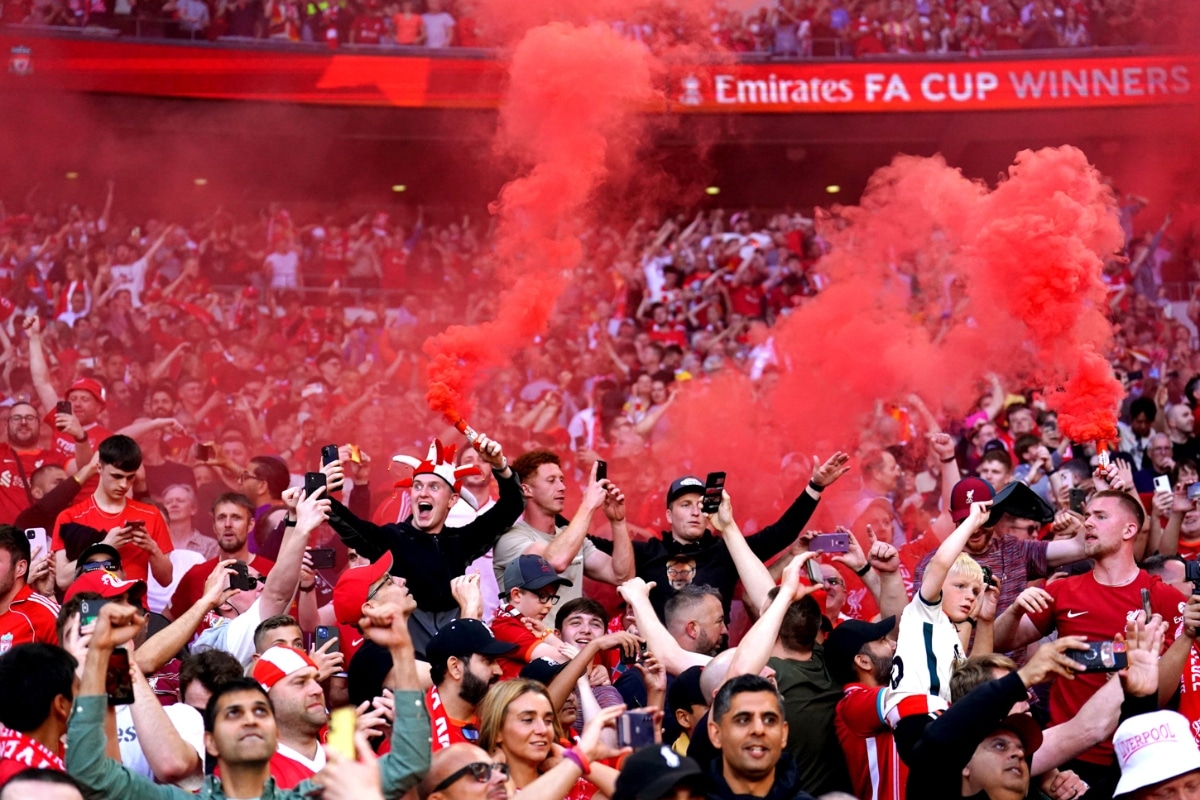Michael Edwards is probably second only to Jürgen Klopp in bringing about the success that Liverpool have found in the last eight or nine years.
The transfer guru and former sporting director was behind the arrival of some of the best players in the club’s history, with everyone from Alisson to Virgil van Dijk to Mohamed Salah arriving while Edwards was at the helm. He was also responsible for getting an incredible £142 million from Barcelona when they signed Philippe Coutinho in January 2018.
So when the news broke that Edwards would be returning to the club as its new “Chief Executive of Football” to oversee the post-Klopp era, Liverpool fans were understandably excited.
However, some have already noticed one specific aspect of his return which will have enticed Edwards – and they have some strong feelings about it.

The “multi-club model”
Following in the footsteps of organisations like the City Football Group – which administers Manchester City, New York City FC, Girona, and many others – Liverpool have brought Edwards on board partly to begin their own move to the “multi-club model”.
It is a growing trend within football – by the end of 2022 there were more than 180 clubs in the world that were part of this model, five times as many as in 2012.
The move allows larger clubs to maintain a steady income of easily accessible talent from other clubs. For example, if a player does well at City Football Group-owned Melbourne City, he can be transferred easily to Manchester City – as was the case when Aaron Mooy signed for the Manchester club in 2016.
In theory, the smaller clubs are protected by the group, slightly more immune from the ever-more chaotic environment of world football.
But the model is not without its controversies. Many have been quick to ask whether it is fair for clubs in the same group to just pass players around when other teams have to work far harder to sign players.
Even more importantly, some say that it reduces the smaller clubs to mere talent factories, losing their identity and what makes them special in the name of financial survival.
What did fans have to say about Liverpool adopting the multi-club model?
And so it appears that Liverpool will be the next club to pursue this way of running things – Michael Edwards himself said today that “One of the biggest factors in my decision is the commitment to acquire and oversee an additional club.”
Some fans were immediately interested by the news, with X user @Jayc_Kop writing “Multi club is on the way, it will be interesting to see who FSG buy and if it will be a European or South American club.”
Others were even more excited, and even more direct with expressing it:
Multi-club-ownership model overseen by Michael Edwards. pic.twitter.com/oYuY9Fzru6
— Anfield Sector (@AnfieldSector) March 12, 2024
On the other hand, a lot of fans were staunchly critical of the idea. Journalist Dan Austin wrote “Multi-club ownership should be opposed. No club should be run with the express purpose of benefitting a superior. Running a “portfolio” of clubs is anti-democratic and rips clubs away from the communities they have been built to represent.”
Commentator Kevin Hatchard, best known for his Bundesliga commentary, was in the same camp: “I was really excited about Edwards coming back to #lfc until I read this. Multi-club ownership should be resisted at all opportunities, and as a fan I really don’t want Liverpool involved in it.”
Others were halfway between, seeing the model as a necessary evil to remain competitive in modern football.
@LaCaroRosso wrote: “Not thrilled that multi-club ownership appears an unstoppable juggernaut that tilts the playing field. So if we must get our hands dirty it’s great [that] strategy will be driven by someone who has studied the models for the best ways to now recruit and develop players.”
With more news to come about Edwards’ deal and which clubs he will want to buy, not to mention the club’s ongoing manager search, this is sure to be a story which will have fans’ attention for some time to come.
